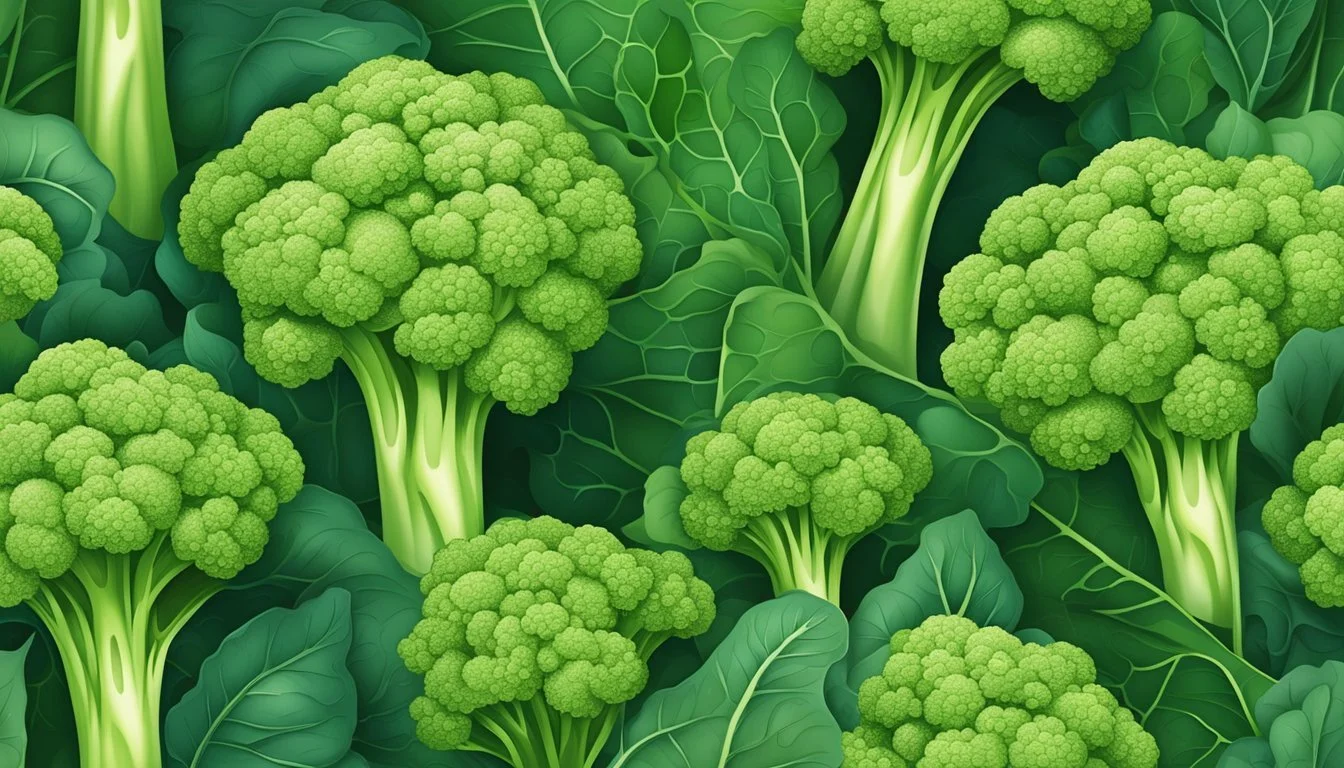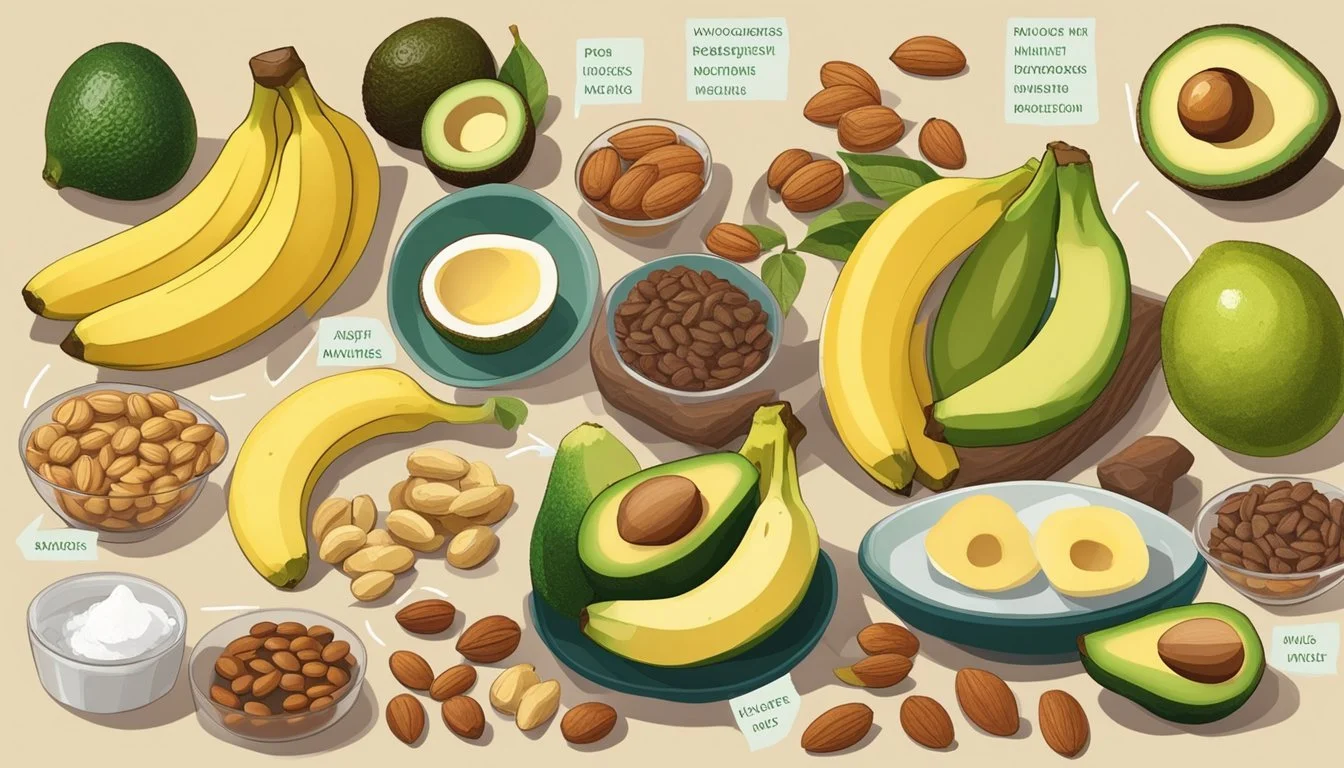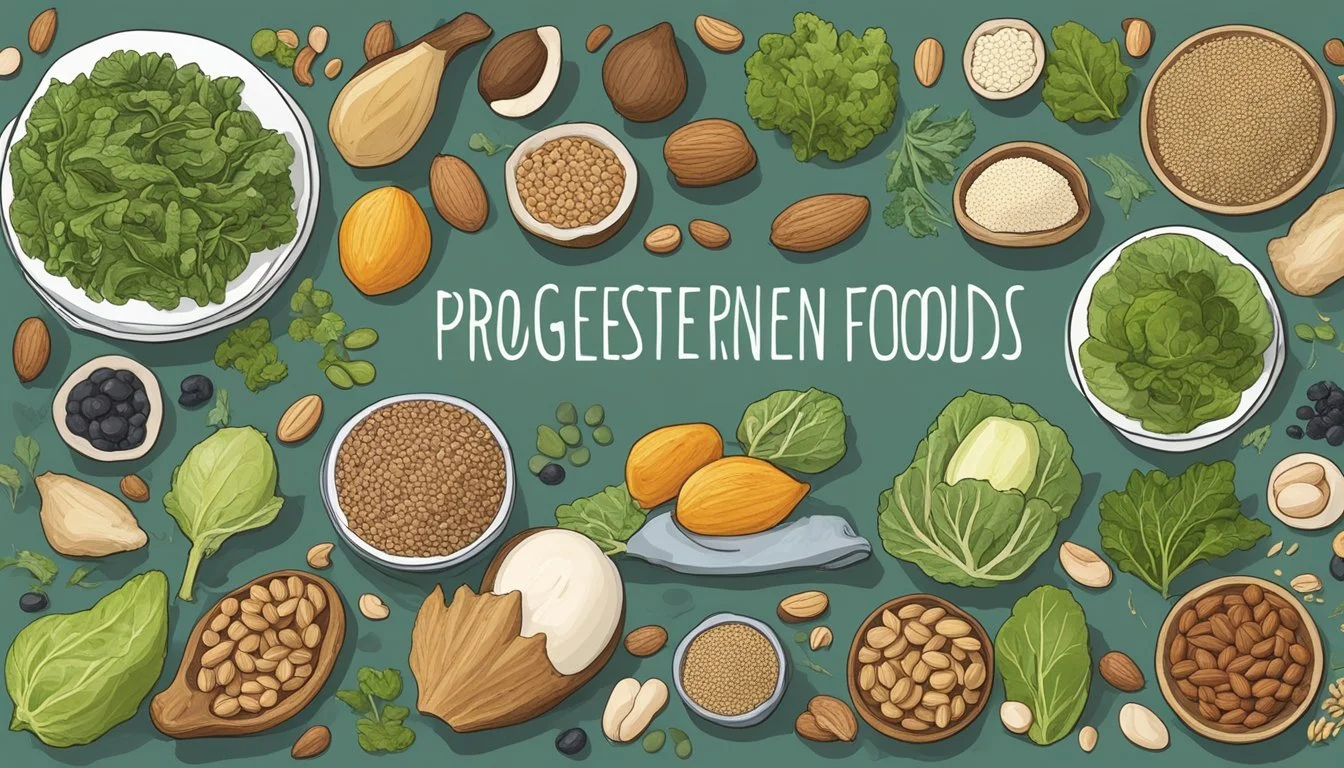Foods That Support Natural Progesterone Production
Top Choices for Hormonal Balance
Maintaining balanced hormone levels is essential for overall health and well-being, and one crucial hormone in this balance is progesterone. While the body naturally produces progesterone, certain foods can help boost its levels, thus supporting various physiological functions.
Discovering which foods are high in progesterone can provide valuable guidance for those looking to enhance their hormonal health naturally. This article will explore the importance of progesterone and how diet can play a significant role in maintaining hormonal equilibrium.
1) Spinach
Spinach is a highly nutritious leafy green that is beneficial for overall health. It stands out for its rich content of vitamins and minerals, particularly Vitamin C, which can support progesterone levels in the body.
This vegetable is also known for its high levels of magnesium and iron.
Magnesium can help regulate hormone balance, making spinach a useful addition to diets aimed at enhancing progesterone production.
Iron supports overall blood health, which is crucial for maintaining stable hormone levels.
Despite its benefits, spinach contains oxalates that can be a concern for some individuals, especially those prone to kidney stones.
Thus, it's beneficial to consume spinach in moderation while ensuring a varied diet that includes an array of other nutrient sources.
2) Pumpkin Seeds
Pumpkin seeds are a beneficial food for promoting progesterone production. These seeds are rich in essential nutrients that support hormonal health.
High in zinc, pumpkin seeds play a crucial role in the synthesis of progesterone. Zinc helps the body to produce and regulate hormones effectively.
Additionally, pumpkin seeds contain healthy fats. These fats aid in maintaining balanced hormone levels. Incorporating these seeds into the diet can be a simple way to support hormone synthesis.
Pumpkin seeds are versatile and can be added to various dishes. They can be sprinkled on salads, smoothies, or yogurts for a nutritious boost.
These seeds are also high in magnesium, which can help reduce stress levels. Lower stress can lead to more stable hormone levels, benefiting the overall endocrine system.
Eating pumpkin seeds regularly may help to enhance progesterone levels naturally.
3) Walnuts
Walnuts are a nutrient-dense food that can support progesterone levels in the body.
Rich in omega-3 fatty acids, walnuts contribute to hormone health. These essential fatty acids play a key role in maintaining balanced hormones, including progesterone.
Walnuts also contain magnesium, which is crucial for overall hormonal balance and can aid in progesterone production.
Incorporating walnuts into the diet can be done in various ways. They can be added to salads, yogurt, or simply consumed as a snack.
Their versatility makes them a practical option for those looking to support their hormone health naturally.
4) Almonds
Almonds are a nutritious snack that can help support healthy progesterone levels. They are rich in essential fatty acids and vitamin E, both of which are important for hormone synthesis. Eating a handful of almonds daily can provide beneficial nutrients that aid in the body's production of progesterone.
Incorporating almonds into a diet is easy. They can be eaten on their own, added to salads, or included in various recipes. The natural oils in almonds provide healthy fats, which are necessary for hormone balance.
Almonds also contain protein and fiber, contributing to overall health and maintaining steady blood sugar levels. This stability helps the body regulate hormone production effectively.
Almonds are versatile and can be enjoyed in different forms, such as almond butter or almond milk. These variations still offer the key nutrients needed for progesterone support.
5) Kale
Kale is a nutrient-dense leafy green known for its health benefits and versatility in recipes. It is a rich source of various vitamins and minerals essential for overall well-being.
This leafy green contains significant amounts of vitamin C. This vitamin plays a crucial role in producing progesterone by facilitating its synthesis in the body.
Kale also contains a compound called kaempferol. Kaempferol is a type of flavonoid known to boost levels of progesterone. This helps regulate numerous physiological processes.
Incorporating kale into your diet can be straightforward. It can be added to salads, smoothies, and soups or used as an ingredient in various dishes. This adds both nutritional value and flavor.
Eating kale regularly can be an effective way to help maintain or increase progesterone levels naturally. Its nutritional profile makes it a valuable addition to a balanced diet.
6) Broccoli
Broccoli belongs to the cruciferous vegetable family and is rich in nutrients beneficial for hormonal health. It contains a compound called indole-3-carbinol. This compound helps the body metabolize estrogen, thereby supporting better hormonal balance.
By managing estrogen levels, broccoli may indirectly contribute to increasing progesterone levels. Including broccoli in the diet can be simple and versatile. It can be added to stir-fries, soups, or enjoyed steamed.
Broccoli is also high in vitamins C and K, which support overall health. Vitamin C, in particular, is linked to the production of progesterone. These nutrients make broccoli a valuable addition to a diet aimed at boosting progesterone naturally.
7) Sunflower Seeds
Sunflower seeds are a valuable addition to a diet aimed at boosting progesterone levels. Rich in vitamin E, these seeds play a crucial role in hormone regulation and synthesis. A single ounce of dried sunflower seeds can provide more than 60% of the daily recommended intake of vitamin E.
The presence of selenium in sunflower seeds contributes to liver detoxification. This process supports hormonal balance within the body. Selenium aids in the regulation of both estrogen and progesterone, making sunflower seeds particularly beneficial during the luteal phase of a woman's menstrual cycle.
Incorporating sunflower seeds into daily meals is easy and versatile. They can be sprinkled on salads, mixed into yogurt, or consumed as a simple snack. This not only adds a nutritional boost but also supports overall hormonal health.
8) Cauliflower
Cauliflower is a versatile vegetable known for its numerous health benefits. Rich in vitamins and minerals, cauliflower is an excellent addition to a diet aimed at balancing hormonal levels, including progesterone.
This cruciferous vegetable contains compounds that can help support liver function, thereby aiding in the processing and balance of hormones within the body.
Cauliflower is also high in fiber, which helps regulate digestion and can assist in the removal of excess hormones from the body. A balanced digestive system is crucial for maintaining hormone levels, including progesterone.
Incorporating cauliflower into meals can be simple and varied. It can be roasted, steamed, or even used as a low-carb substitute for grains and starches, such as in cauliflower rice or pizza crust.
The presence of antioxidants in cauliflower, like vitamin C, further supports the body's overall hormonal health. Antioxidants help combat oxidative stress, which can negatively impact hormone production and balance.
Overall, the nutrient profile of cauliflower makes it a beneficial food for those looking to support their progesterone levels naturally through diet.
9) Carrots
Carrots, known for their high beta-carotene content, play a role in supporting the balance of hormones in the body. Beta-carotene can help regulate levels of progesterone, a crucial hormone for reproductive health.
Rich in antioxidants, carrots can help reduce oxidative stress. This reduction supports overall hormonal balance, including progesterone levels.
Incorporate carrots into your diet as snacks or by adding them to salads and other meals. The nutritional benefits extend beyond just hormonal support, contributing to overall wellness. Their versatility in cooking makes them an easy addition to a variety of dishes.
10) Egg Yolks
Egg yolks are a rich source of essential nutrients that can support progesterone production.
They contain significant amounts of cholesterol, which serves as a precursor for progesterone synthesis in the body. This means that consuming egg yolks can provide the raw materials needed for the body to produce this crucial hormone.
In addition to cholesterol, egg yolks are high in vitamins A and D. These vitamins are vital for hormonal balance. Vitamin A, in particular, can help to regulate the production of progesterone.
The presence of healthy fats in egg yolks also plays a role in hormone production. These fats are necessary for maintaining overall endocrine health, which in turn supports progesterone levels.
Egg yolks are easy to incorporate into a variety of dishes. They can be added to salads, used in baking, or enjoyed as part of a breakfast meal.
Given their nutritional profile, egg yolks can be a valuable addition to the diet for those looking to support their progesterone levels naturally.
Understanding Progesterone
Progesterone is a hormone that plays a crucial role in reproductive health and overall well-being, particularly for women. This section delves into its functions within the body and underscores its importance for women's health.
Role in the Body
Progesterone is a steroid hormone produced primarily in the ovaries following ovulation. It helps regulate the menstrual cycle and is vital for maintaining the early stages of pregnancy.
Produced by the corpus luteum, it prepares the endometrium for potential embryo implantation. Additionally, progesterone supports the development of mammary glands and reduces muscle contractions in the uterus, promoting a conducive environment for pregnancy.
Importance for Women's Health
For women's health, maintaining adequate progesterone levels is essential. It balances estrogen levels, preventing conditions like estrogen dominance that can lead to issues such as PMS and fibroids.
Healthy progesterone levels alleviate menstrual symptoms such as cramps and heavy bleeding. They also play a role in stabilizing mood and reducing anxiety, contributing to mental well-being. Low levels can cause infertility, highlighting the hormone's role in reproductive health.
Dietary Sources of Progesterone-Boosting Nutrients
Several nutrients play a crucial role in boosting progesterone levels in the body. Among these, vitamins and minerals such as magnesium and vitamin B6, along with specific herbal supplements, are most notable.
Vitamins and Minerals
Certain vitamins and minerals are essential for progesterone production. Magnesium, found in nuts like almonds and cashews, helps regulate hormone levels. Pumpkin seeds, sunflower seeds, and walnuts are also rich in magnesium.
Vitamin B6 is another key nutrient. Foods high in vitamin B6 include tuna, salmon, and potatoes, which help balance hormone levels. Adequate intake of these nutrients supports overall hormonal health and can contribute to increased progesterone production.
Herbal Supplements
Herbal supplements can also boost progesterone naturally. Chasteberry, known for its hormone-balancing properties, is a popular choice. Additionally, maca root has been noted for its ability to support hormonal balance.
Other herbal remedies include evening primrose oil and red raspberry leaf, which are used to promote progesterone levels. These supplements should be taken under guidance to ensure proper dosage and effectiveness.
Benefits of Progesterone-Rich Foods
Progesterone-rich foods play a crucial role in maintaining hormonal balance and supporting reproductive health. These nutrients can help regulate the menstrual cycle and reduce symptoms associated with hormonal imbalances.
Hormonal Balance
Consuming foods that support progesterone production can significantly impact hormonal levels. Citrus fruits like oranges and lemons are rich in vitamin C, which contributes to the synthesis of progesterone.
Vitamin B6, found in lean meats such as tuna and salmon, is essential for hormone regulation. This nutrient has been linked to reducing estrogen dominance by promoting progesterone production. Berries, including strawberries and blueberries, contain antioxidants that support the endocrine system.
Balanced hormones can lead to improved mood and energy levels. Stress management, sleep quality, and maintaining a healthy weight further support hormonal health.
Reproductive Health
Progesterone is essential for reproductive health, particularly in women. Adequate levels can help regulate the menstrual cycle, reducing symptoms such as cramps and irregular periods. Foods high in vitamin B6 and antioxidants support this process.
According to studies, vitamin B6 intake reduces the risk of miscarriage and supports pregnancy. Potatoes and bananas are excellent sources of this vitamin, promoting overall reproductive wellness.
Healthy fats, found in nuts and avocados, also play a role in hormone regulation. Including these foods in the diet can support reproductive organs and improve fertility outcomes.











